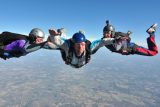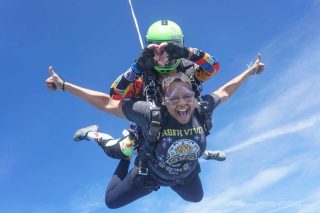AFF vs A-License in Skydiving
Learn to Skydive
10 months ago
AFF (Accelerated Freefall) vs A-License – How Are They Different?
So, you’ve done a tandem skydive, tasted the thrill of freefall, and realized, that skydiving is more than just a sport – it’s a way of life! If you catch yourself constantly staring at the sky thinking, “I want to be up there! How can I get licensed to fly?” Enter the chat: Accelerated Freefall (aka, AFF).
OK, so what is the AFF license? Wait! Is there even such a thing as an AFF license!? Woah, woah, woah, STOP, collaborate, and listen. We’ve got you! This article will dive into AFF certification, how it’s different from the USPA A License, skydiving student progression, and why it’s one of the best decisions you may ever make!!!
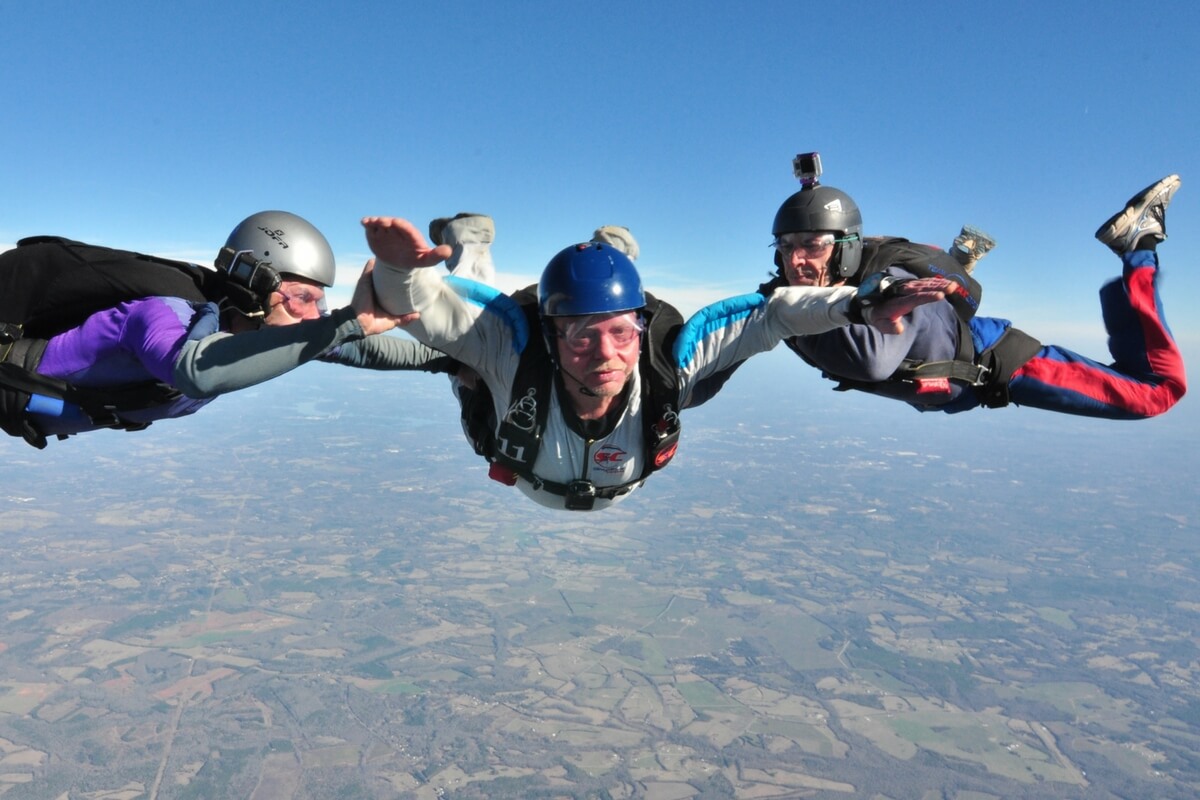
AFF vs A License: The Differences
To put it very plainly: AFF is just a part of the training required to achieve your United States Parachute Association (USPA) A License. AFF is broken up into a series of jumps, each focusing on various skills necessary to be a safety-oriented skydiver. The purpose of the AFF program is to instill confidence and competency within you before setting you free to fly all on your own!
The AFF program is about learning and mastering the very basics with instructor support, while the A-license signifies a certain level of independence reached in the sport. AFF is simply a stepping stone to achieving the A-license, marking the transition from student to certified solo skydiver! Let’s explore three main differences between the AFF and the USPA A license.
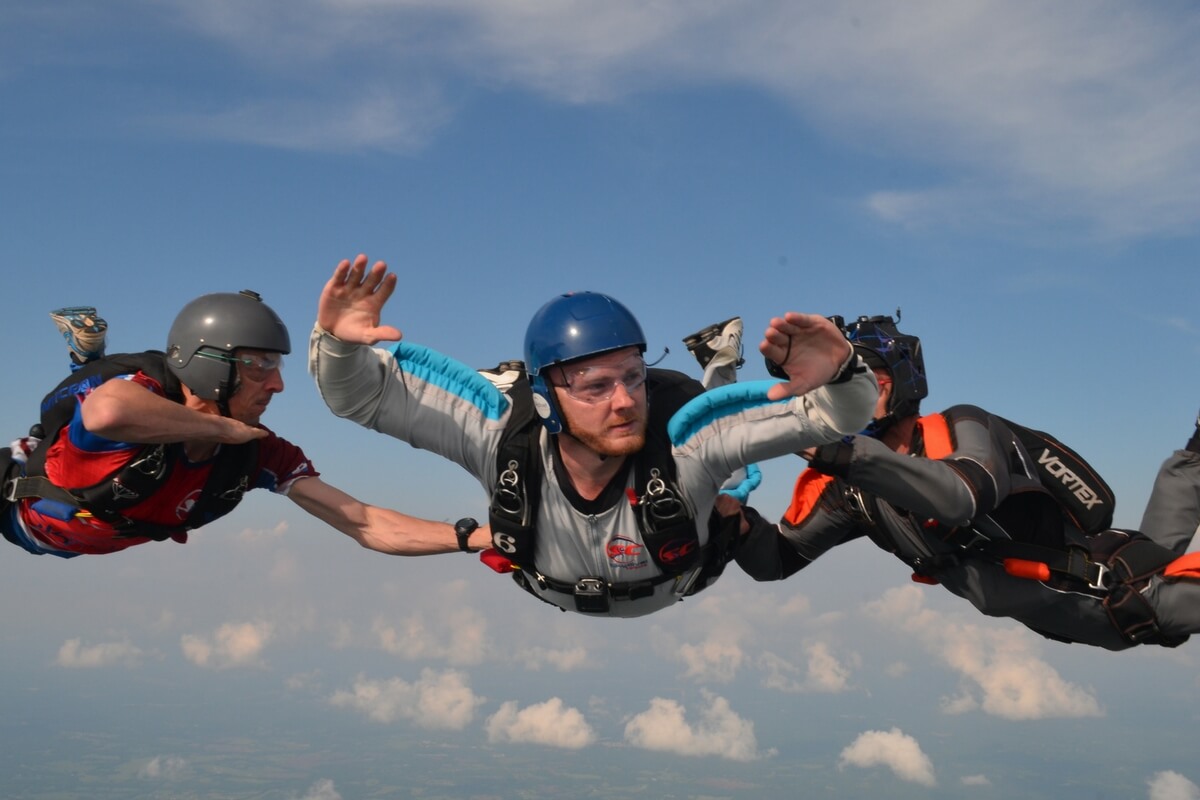
1. Introduction vs proficiency.
AFF is an introduction to the sport of skydiving that begins with direct, dual-instructor supervision. As the program progresses and skills are achieved, your instructor’s physical input decreases and you gain more independence in the sky – until eventually, you are jumping totally solo! By completing the AFF curriculum and the A-License requirements, you demonstrate that you can be safety-minded for yourself and others while skydiving.
2. Skill demonstration.
The skills needed to pass AFF place a hefty emphasis on freefall and canopy piloting. Although these are also absolutely critical attributes to the A License, after completing AFF, you must also pass a parachute packing class, a written examination, and a “check dive” with an instructor – proving your awareness and ability to follow a plan in freefall. Think: skill acquisition vs actually mastering and fine-tuning certain skills.
3. Structured learning vs privileges.
AFF students are being taught how to safely fly their bodies and their canopies while skydiving. After the few interim jumps between AFF and the A License, the real fun begins. A-License skydiving means you can dive into various skydiving disciplines, jump with multiple friends at once, and begin working toward higher license levels (B through D) and ratings, such as Coach, Instructor, or PRO.
Who Issues Skydiving Licenses?
The United States Parachute Association is one of the primary governing bodies for skydivers. They tell us what we can do, what we definitely cannot do, and they set the standards for those graduating AFF and going on to achieve their A License.
The dropzone (such as Skydive Carolina) at which you complete your A-License requirements will be able to give you your A-license stamp, and once you send in the proof to the USPA, you’ll get your A License!
Can you switch dropzones during student progression through the AFF program? Technically, yes. Due to people traveling for long periods, moving, or other extenuating circumstances, it is sometimes necessary to complete the AFF requirements at more than one dropzone. Is it recommended? Not particularly. Initially, skydiving is pretty overwhelming, and it’s beneficial to have a fostered and growing instructor-to-student relationship and familiarity with the dropzone and facilities.
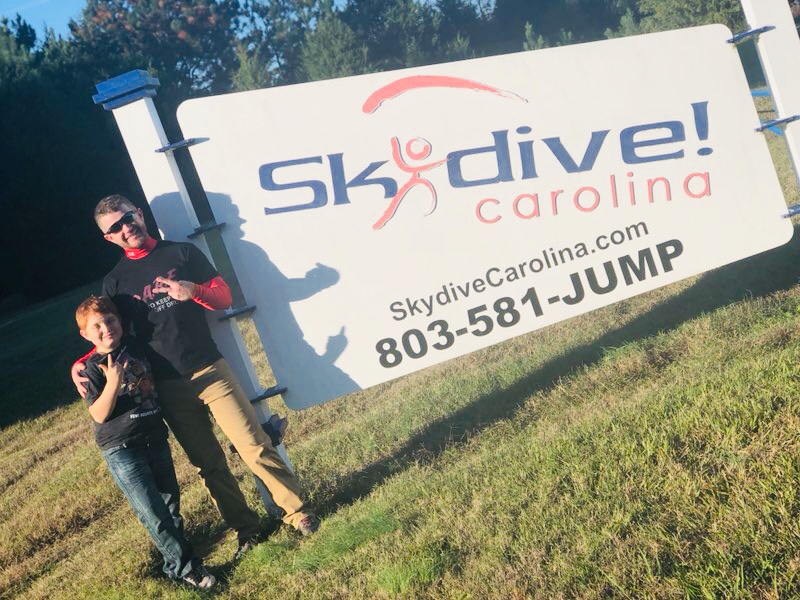
Timelines: AFF vs A License
How long does it take to do an AFF course? As long as you need it to take! Most people opt to complete their AFF progression in a few weeks to a few months, it just depends how often you’re able to jump. Those pursuing their A License must follow strict currency standards. Why? Safety is first – always! What does this mean? After a certain amount of time, students are required to do re-currency jumps before continuing their training, and sometimes even required to retake the ground school portion of AFF.
How many jumps does it take? At Skydive Carolina, AFF can be completed in as few as 18 skydives – more if redos are required – and there is a 25 jump minimum requirement for the A License. Meaning, people can earn their A License in 25 jumps, but sometimes it takes a few more!
What if you fail a level of AFF? You repeat it! We won’t kick you out of skydiving forever if you fail to complete a level properly, you will just get some additional training and try again.
What is the AFF Full Course Cost?
At Skydive Carolina, we offer a package deal for our AFF program! The initial phase costs $2,119 and the second phase costs $1,150.
The price tag on learning to skydive solo may seem hefty at first glance, but once you’re soaring through the skies, it’s obvious that it is worth every penny. Plus, as you get more into the sport, the expenses significantly drop – just $31 per jump ticket for licensed jumpers! – and the fun skyrockets. Seriously, how many people can say they spent their weekend jumping out of a plane with their friends?
Ready to complete the AFF program, leap through a few extra skydives, and earn that A License?! We can’t wait to have you! Book your AFF course now and reach out to us with any questions. Blue skies!



